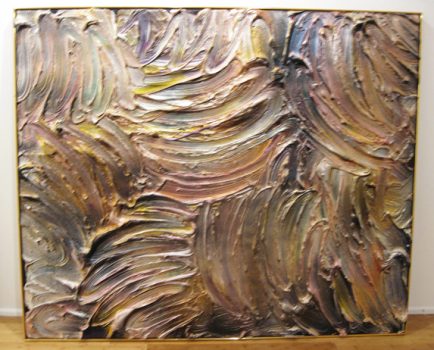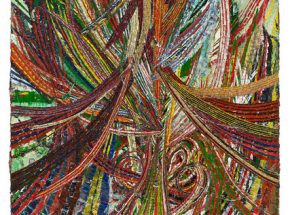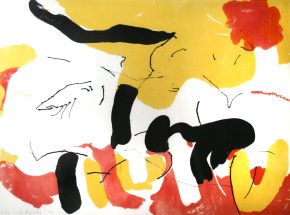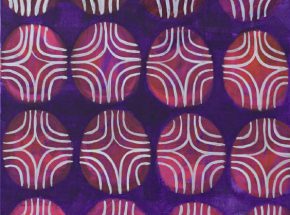
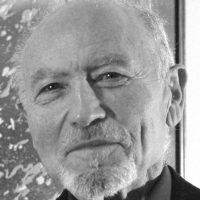
Color Field painter Jules Olitski was a GI Bill student in Paris, where he had his first solo exhibition in 1951. Later in New York, with his GI compatriot Ellsworth Kelly, “he explored the autonomy of materials in terms of a completely flat definition of shape and color.” He then investigated the staining techniques established by Helen Frankenthaler, Kenneth Noland, and Morris Louis, and finally in the 1960s arrived at the method of spray painting which has become his domain by right of accomplishment. Olitski adopted a technique in which he employed airbrushes or squeegees, applying paint in a multilayered film.
Olitski, together with Larry Poons, Noland, Frankenthaler and Louis, was at the center of an absorbed interest in color which became especially prominent by the end of the 1950s–an interest given focus by a series of exhibitions organized by Clement Greenberg in 1958.
In the art of Jules Olitski, there is a sustained effort to produce a visual experience utterly unique to painting. In the will to suppress any personal display, and to create a work of art that is only, but precisely, a visual event, one aspect of the Modernist tradition (www.sheldon.unl.edu).
Jules Olitski forged in 1995 a new way of interpreting the landscape through his own unique use of color and form. Over the last four years, working not only in his home on Lake Winnipesaukee in New Hampshire, but in Connecticut and Florida as well, Olitski has produced a large body of monotypes, watercolors, pastels, acrylics and various mixed media combinations that range in size from large to small.
Most feature intense landscape forms – trees, cliffs, islands, sunrises and sunsets – expressed in thoughtful phantom moods that shimmer and radiate. His latest expressive painting reveals the continuing development of one of America’s finest painters. In addition to having had over 150 solo exhibitions worldwide, his work is in the collections of the Australian National Gallery, Boston Museum of Fine Arts, Dallas Museum of Fine Arts, The Israel Museum (Israel), The Metropolitan Museum of Art (New York), Museum of Modern Art (New York), National Gallery of Canada, Seattle Museum, Museum of Fine Arts (Houston), and the Whitney Museum of American Art (New York) (www.vlynchgallery.com).
Credits:
www.sheldon.unl.edu
www.vlynchgallery.com
Website
http://www.olitski.com
